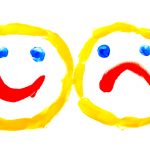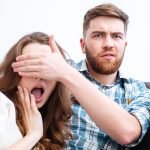Once again, modern medicine is making a splash over a “new” discovery that’s been around since ancient times. Recent research at the University of South Carolina has confirmed that magnetic therapy relieves depression, a fact Tibetan monks and alternative healers have known and have been putting into practice for centuries. A few years ago, to test the claims of the monks, the Menninger Clinic ran a double-blind study in which static magnets were suspended over the heads of meditating monks and, in fact, positive mood alterations were observed. Now this latest study has upped the ante in a way that led the FDA to approve a machine that uses magnetic pulses to stimulate the depressed brain.
The new study tested 164 subjects who had tried antidepressants with no success and exposed half of them to a device that aims a magnet at the prefrontal cortex in the front of the head, beaming 3,000 impulses a minute. The subjects underwent about 30 treatments of 45 minutes each over a six-week period. The other half of the subjects received sham treatments. Sure enough, those subjects zapped with the device, called NeuroStar, showed twice the improvement of those exposed to the phony treatment.
There have been several other earlier studies also exploring the effects of magnets on depression, and they consistently have found that magnetic therapy works at least as well as antidepressant medication, without the side effects. And yet, as I mentioned in a blog I wrote last May reporting on the healing effects of magnets, the modern medical community has been blithely dismissing magnetic therapy as mere quackery for decades. Even the scientists on the NeuroStar team report facing the derision of their peers, as head researcher, Dr. Mark George, reports: “Nobody thought this would work; [they thought] it was a crazy idea. I had to do it at 6 in the morning before the ‘real’ scientists came in.”
It’s a good thing he persisted in spite of the sneers from his peers, because those people treated with NeuroStar report better relief from depression than from other, conventional therapies — i.e., pharmaceutical drugs. “One day it was like a light switch went off,” says Steve Newman, 60, of Washington, D.C., who tried numerous drugs without success and was considering shock therapy. But after trying NeuroStar, “I was awake. I was there.”
Likewise, Martha Franco of Connecticut, who tried an earlier version of magnetic therapy in a trial at Columbia University, had undergone the gamut of treatments for depression, including drug therapy, and she still remained suicidal — until magnetic therapy. “The sun seemed brighter [after magnetic therapy], food tasted different,” she said. “I mean, I could actually taste food. It was just wonderful.”
Again, all this success comes with none of the side effects of antidepressant medication — no sedation, nausea, dry mouth, memory problems, weight gain, liver impairment, heart attacks, sexual dysfunction, diarrhea, nor seizures. Sounds like a winner. Ah, but the device is only approved for cases of major depression, where other treatments have failed. In other words, the patient has to have gone the antidepressant route with no luck before they can get a prescription for NeuroStar. And yes, it’s available only by prescription, at a cost of between $6,000 to $10,000, depending on how many treatments a patient needs.
It’s interesting how the medical community has done an about-face regarding magnetic therapy in this case, now that there’s a big profit to be made. When magnetic therapy involves store-bought magnets at a few dollars each, or when it involves holistic treatments at reasonable cost, science has no interest. But when it involves a doctor’s prescription and sales of an expensive machine that requires costly treatments, suddenly the FDA gives the stamp of approval. The message is that magnetic therapy works only if applied at great expense by a medical doctor.
And it’s also noteworthy that because of the way that the FDA’s approval has been structured, the medical establishment experiences a win-win. First they get to sell antidepressants to patients and rake in the profits [remember, it’s mandated], and when the pills fail, they collect a second time by selling extremely expensive magnetic technology. But at least the technology does really appear to offer hope and a non-toxic alternative to those whom medical science has failed to this point.
:hc












Thank you for supporting those that are required by the FDA to state that they do not cure or treat any disease but do have experience helping clients deal with their symptoms in a way that allows the body to repair itself.
People are beginning to realize that the drug pushers that control the laws are seldom able to do that.
Hans Albert Quistorff, LMP
Antalgic Posture Pain Specialist
Using magnets to help swollen tissue.
I’m very happy to see that these types of clinical trials are being conducted and, presumably, published in journals. I can only hope that it goes a ways to convince skeptics in positions of power at medical organizations that certain alternative treatments have a use in at least some cases.
For years bodies like the FDA in the US and the much less important ASA in the UK have put up barriers to magnetic therapy saying they have not seen evidence of efficacy for magnetic products. Even when evidence was there they did not recognize it. Its unfortunate that ignorance can be used as an enforceable argument to legislate against the interest of whole populations. Fortunately the majority is more educated and do not limit the choice of therapy because a system has used all its resources to hide and keep secret an invaluable therapy discovered at the dawn of medicine. Sales worth billions are increasing every year even in the most regulated environments.
Great article !!
Could I use this article with all the due links to your site ?
I collect this type of precious and useful information.
Thanks again for your very informative site !
JMB
Dear John:
Glad you liked the article. Jon Barron allows people to use his information with a minimum of hassle. Here are the guidelines. http://www.jonbarron.org/content_share.php
Hope that helps.
Cathy Gaines
Director
Baseline of Health Foundation